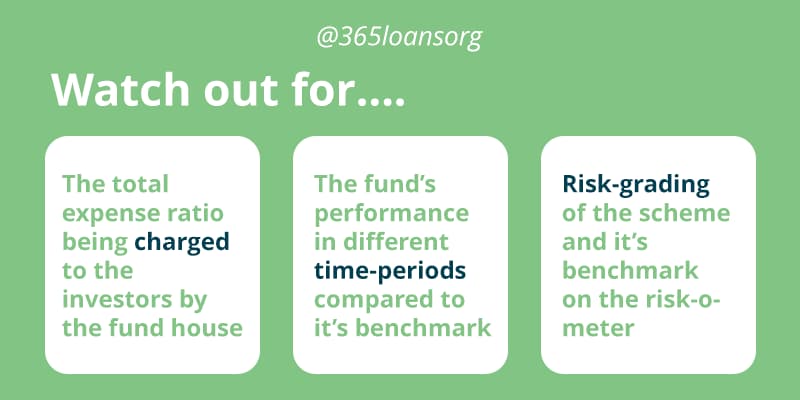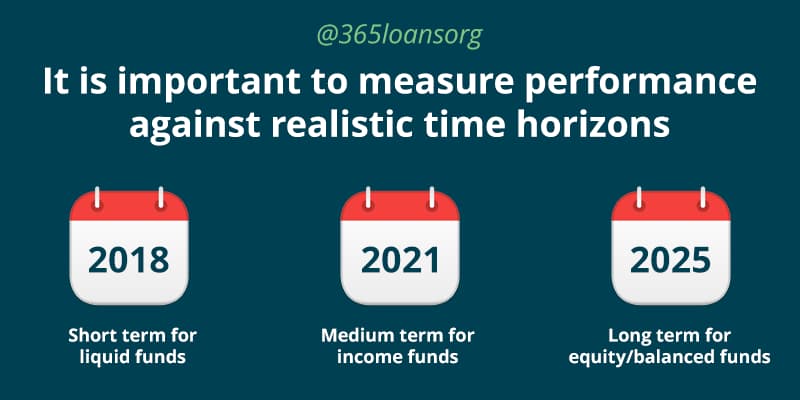How does a potential investor pick a mutual fund?
One will want to know how skilled the fund manager is, and historical performance is the most obvious indicator of expertise. But a ton of research has consistently shown that past success is not indicative of future performance and is therefore unimportant when selecting a mutual fund.
How is this possible?
Predicting Mutual Fund Performance: Skill vs. Luck
According to one perspective, fund managers are not naturally skilled. Thus, any success is the result of good fortune. This is how one might approach it. Skill lasts a lifetime. If prior success was the result of skill, current success ought to continue.
But luck only lasts so long.

If good past performance resulted from luck, future performance ought to revert to the norm. This appears to corroborate the luck theory because future performance looks unpredictable. This has significant ramifications for investors because actively managed funds’ hefty fees (about 1.5% annually) are useless if mutual fund managers truly lack skill. Put your funds in passive index funds instead, where expenses can be as little as 0.1%.
The recent significant growth of passive index funds may be attributed to this way of thinking.
However, Jonathan Berk (Stanford) and Rick Green (Carnegie Mellon) came to a different conclusion in a well-respected work published in 2004.
Good historical performance is a sign of ability among fund managers, who are trained professionals. However, because everyone is attempting to invest with a knowledgeable manager, managers with a strong track record benefit from a flood of new money coming in. As a result, the fund manager will not discourage the incoming flows, increasing his assets under management (AuM) and, consequently, his fees (which are a percentage of AuM).
But because investment offers declining returns as a returns scale, it will make him do worse the following year. The management is required to use the new funds. He has nevertheless already begun to invest in his best stock picks. Due to a lack of market liquidity to meet this increased demand, he is unable to invest all of the new funds in the same stocks. He will next have to select his least desirable choices, which will perform worse. Consequently, while past performance can serve as a gauge of talent, it cannot predict future success.
It is a kind of a Catch-22. So what is the right move here?
How to pick Mutual Fund stocks to buy?
An example would be picking a specific stock. It won’t be beneficial to select a stock based on a desirable trait that is well known to everyone (for example, purchasing Facebook because it is the market leader in social media).

The “Efficient Markets Hypothesis” states that since everyone else is aware of that trait, they will have invested in the shares, raising the stock price. Similar to the previous example, it is ineffective to assess fund manager competency using a widely accepted dimension (such as past performance). Since everyone else is aware of the fund’s prior performance, they will have invested in it and increased the fund’s AuM, which will negatively affect its future performance.
In a similar vein, the key to selecting a mutual fund is to identify a metric of talent based on a secret (but legal) inside information that is not known to others. This is where Jonathan’s brilliant new article, “Matching Capital and Labor,” by him, Jules van Binsbergen (Wharton), and Binying Liu (Kellogg), comes in.
Binying, Jules, and Jonathan discover three major hits:
- Decisions on promotions and downsizing cannot be predicted using performance history information. In other words, watching these decisions gives investors knowledge beyond what we would learn from prior performance data. It enables us to deduce the private details about the fund family legally.
- The value added by the fund manager is increased by both promotions and demotions. The authors calculate the value added using a metric that Jonathan and Jules first used in a previous study. Assets under management (“AUM”) multiplied by the fund’s “gross alpha,” which is its real return before fees and expenditures less the return from passively holding the benchmark. This provides a monetary indicator of the value that active management adds (or subtracts). Both promotions and demotions result in a rise in future value-added, which shows that although promotions provide more capital to a smart manager who can spend it wisely, demotions remove a less skilled manager who was wasting capital. As a result, the information provided by judgments on promotions and demotions is both helpful and incremental (to prior performance).
- Insider knowledge is what determines outcomes. Future value added is unaffected by “external” promotions or demotions (a manager moving to a new fund family and managing a fund with a higher or lower AUM than he did before).
The same research also suggests that you can deduce the secret information about the fund family by observing promotion and demotion decisions, which can be done using data sources like Morningstar and CRSP. How to predict mutual fund performance is one of the most crucial practical questions for investors, yet decades of academic research have come up empty. Binying, Jules, and Jonathan might have just discovered a solution.







